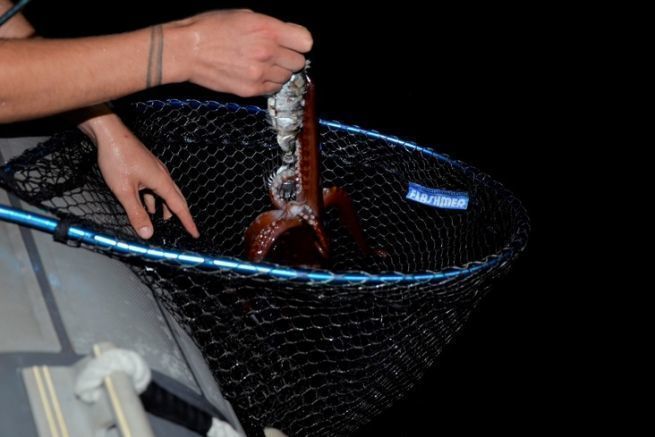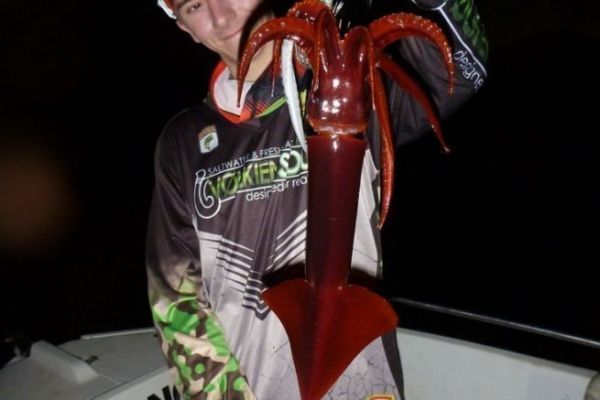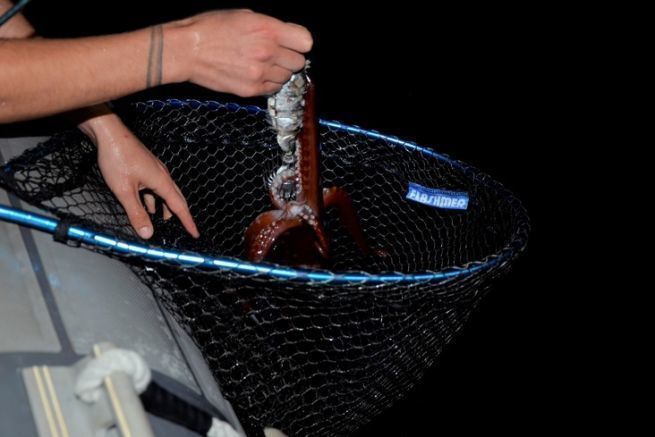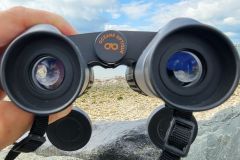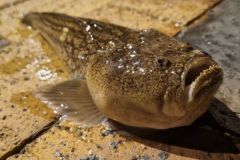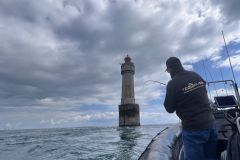The rod and reel set
As with most vertical fishing, if I had to choose one set, it would be a casting set.
In this case, for red squid fishing, a 30 lb. rod and a size 300 reel with a large amount of braid. Spinning is the least comfortable type of set, it often happens that the line touches the freeboard of the boat when you pump to bring the squid to the surface.
In casting, during long evenings, it is even possible to put the rod on the boat to avoid having to bear the weight of the cage and the squid over 100 meters of water.
On the technical side, it's easier to control the descent with a casting reel, making it much less likely that you'll miss the most subtle touches.
The sardine cage
The cages that can be found on the market are very different depending on the brand and model. Some have a single basket, others have phosphorescent paint coatings. It is not always easy to make the right choice.
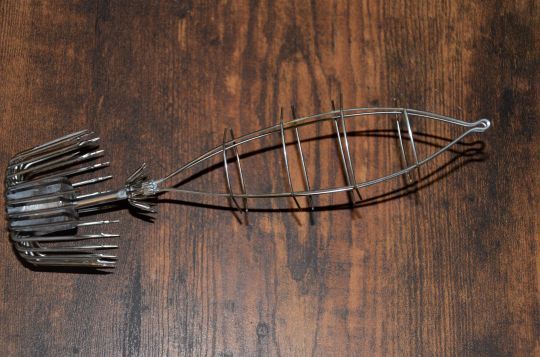
Generally speaking, baskets with short claws are the most efficient. Some cages even have barbs, allowing to unhook less frequently the badly bitten squids. Glow-in-the-dark paint is not mandatory, but it adds a little extra that can sometimes make a difference if activity is low.
Ideally, the sardines used as bait should be large enough to prevent them from slipping through the bars of the cage when a squid grabs them.
The light attractions
Most of the cages available on the market are equipped with a small ring, under the lead, intended to serve as an attachment for small waterproof lamps. These are available in a multitude of colors.
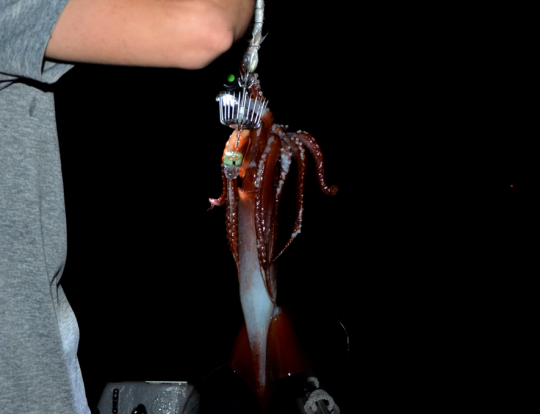
The colors that work best are surely blue, green and white. The wavelength of this light disappears much deeper than red or orange, ineffective from 30 or 40 meters.
These small lamps must be dried well after use, they are triggered by the contact of water and can remain lit for hours in the box, thus losing life, if they are still wet.
There are also starlight receptacles that can be attached to the wire. Unfortunately, the starlights can only be used during a single session, and the risk of them opening in the water and releasing the very polluting liquid they contain makes them an option to be avoided at all costs.

 /
/ 